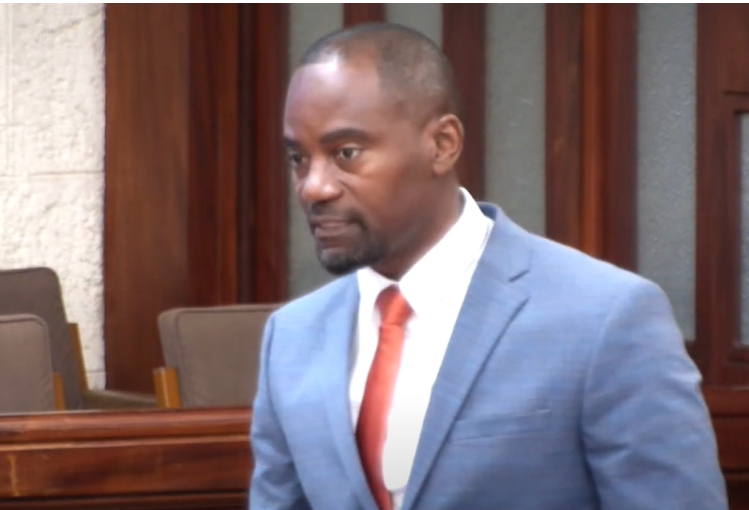Barbados' Needy Children Left Without Back-to-School Assistance, Minister Calls for System Overhaul

September 13, 2023
By Marlon Madden reports on the concerns expressed by Minister Kirk Humphrey about the delays in providing back-to-school assistance to needy children in Barbados, blaming a "broken" system that does not adequately cater to the most vulnerable.
By Marlon Madden
Some of Barbados’ most needy children could be forced to return to the classroom next week without back-to-school assistance from the Welfare Department and Minister of People Empowerment and Elder Affairs Kirk Humphrey is blaming this on a “broken” system.
He made the complaint on Tuesday as he indicated that less than a week before the start of the new school year, some families were still waiting to hear whether they would be getting any help.
He insisted that the processes within state agencies need urgent deconstruction and reconstruction in order to better cater to the needs of the most vulnerable.
“I have just had a conversation with some of my public servants in relation to what is happening at Welfare. We are about to start back-to-school [and] many persons have applied for back-to-school support and yet many persons haven’t even received a call,” Humphrey complained during debate in the House of Assembly on a resolution to lease property at the Garrison, St Michael to the Autism Association of Barbados.
“Something is wrong with the system and we have to find a way to fix the system. If it is additional resources, I have told the permanent secretary ‘let’s find a temporary solution. Bring in additional resources’. But on the eve of school, a person should not be wondering if they are going to get support or not. These things have to be settled,” he added, though he gave no indication when the requests for assistance were made.
There are currently some 2 000 parents who rely on the Welfare Department for assistance.
Humphrey, who announced last year that the departments providing social services would be amalgamated into a Department of Family Services, expressed frustration that “too many things are not working as they should to benefit people”.
He complained that public servants seemed to have “become so slaved to the process” while “losing sight of the big picture”.
“It can’t work,” he insisted. “We have done the same thing in relation to persons with disabilities. We are so slaved to the process.”
Humphrey also expressed disappointment that it could take up to eight months for approvals to be granted for individuals to import transportation for people with disabilities.
“We are so busy with the idea that we must do everything right that we fail to do the right thing . . . . Transportation has been a major problem and it is something we have to fix,” he declared.
The minister also expressed concern that students were passing through the school system “and nobody is recognising that they have some kind of learning disability, a cognitive challenge of some sort”.
He suggested that as part of the planned education reform, children with disabilities be given special consideration.
“These things, like in my own ministry, sometimes just take too long. It is not that the workers are bad workers, but the systems are broken,” he said, adding that the time had come for the systems to be “deconstructed and reconstructed”.
“We have been doing it but it is taking too long, because at the end of the day, I know when somebody is hungry and a mother is not sure how she is going to feed her child, when a person is dealing with a child with a disability and they do not have the money, it does not matter that we are being loyal to the process. It matters to the people that they are not benefitting from the promise of this country.”
Humphrey also indicated his desire for more to be done to help parents with children who have a disability, get healthcare.
“We have to do better in our healthcare system . . . . We have to do better. The social protection that is made available to the country must be made available to its most vulnerable first. We have a lot of persons who are transient – passing through poverty – and we have a responsibility to make sure they don’t stay there so that those resources can go to the most vulnerable – persons who are dealing with a non-communicable disease and a disability,” he said.
“We can’t go about this in silos. It has to be a comprehensive approach to addressing this challenge.”
[email protected]


